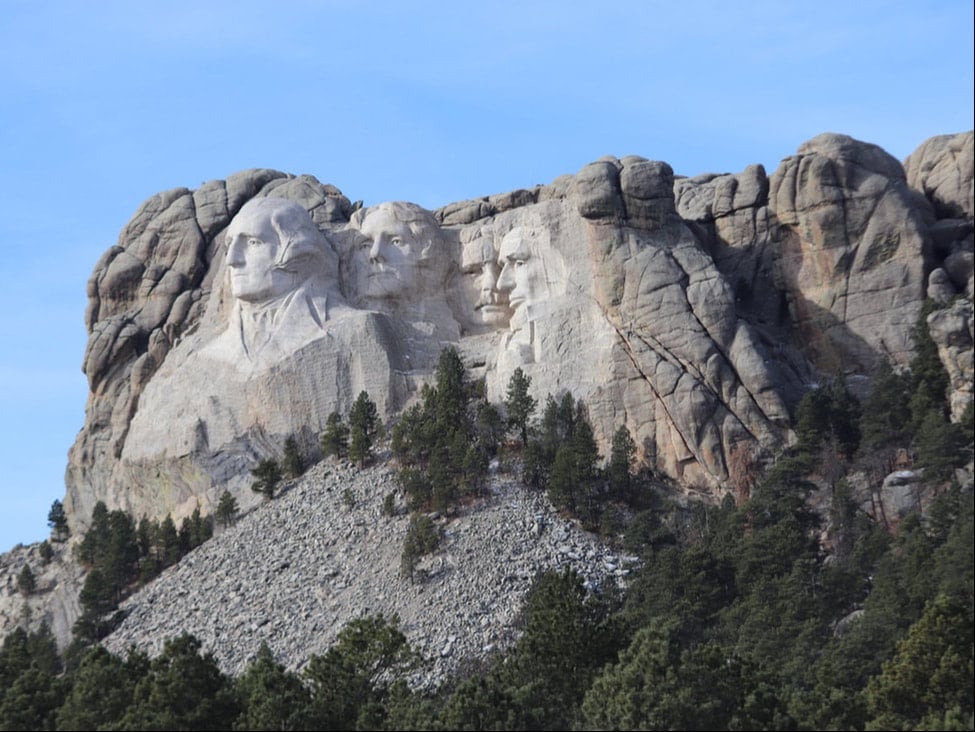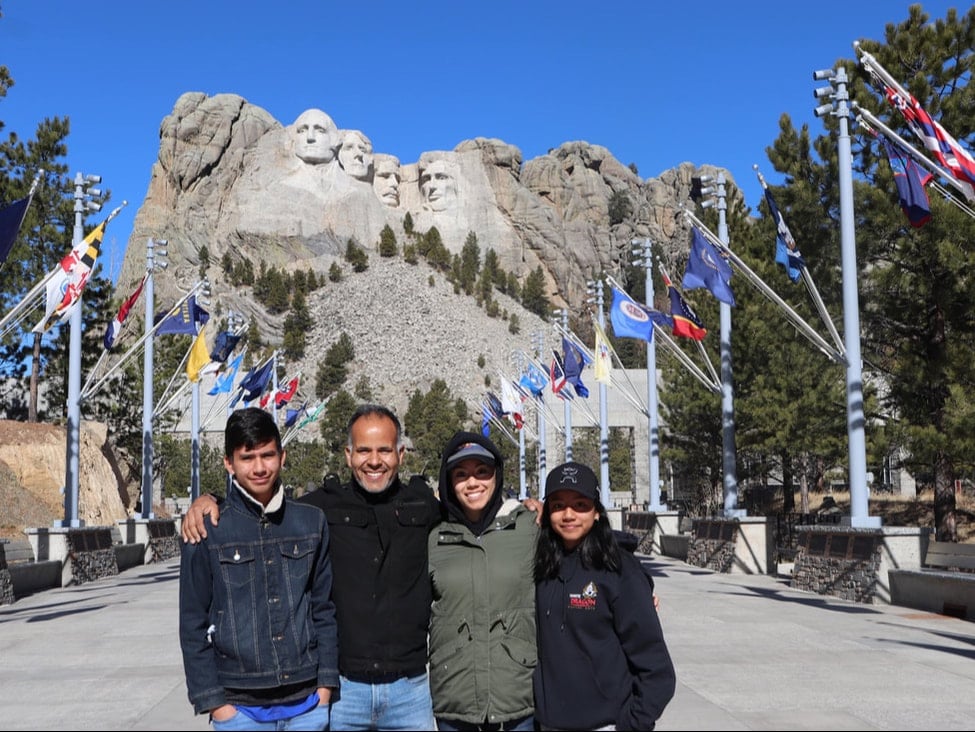Mount Rushmore Memorial

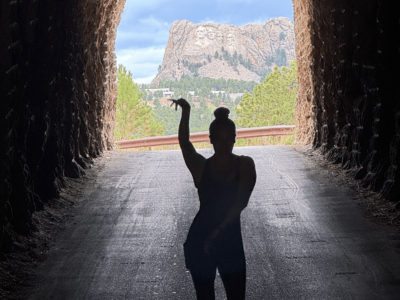

A Monument to American Vision: Mount Rushmore in the Heart of the Black Hills
Carved into the granite cliffs of South Dakota’s sacred Black Hills, Mount Rushmore stands as one of America’s most powerful symbols of leadership, legacy, and national identity. This monumental sculpture features the faces of four transformative U.S. presidents—George Washington, Thomas Jefferson, Theodore Roosevelt, and Abraham Lincoln—each selected for their lasting impact on the birth, expansion, preservation, and unification of the United States. More than just a tourist stop, Mount Rushmore is a larger-than-life tribute to the ideals of democracy and the spirit of progress that shaped the nation.
How Mount Rushmore Came to Be: The Vision, the Craft, and the Legacy
Mount Rushmore began as a bold idea by South Dakota historian Doane Robinson, who envisioned a monumental attraction to draw visitors to the Black Hills. His dream found its sculptor in Gutzon Borglum, a man known for thinking—and carving—on a grand scale. Work began in 1927, and over the course of 14 years, more than 400 men and women helped shape the mountain into what we see today.
Imagined initially as full busts of the presidents, the design was scaled back to focus on their faces due to budget limitations. Even so, the result is breathtaking. This colossal sculpture stands as an artistic marvel and a testament to American resilience and vision. Today, over 2 million people visit Mount Rushmore annually, drawn by its grandeur, history, and iconic presence in the heart of the Black Hills.
Engineering Greatness: The Craftsmanship Behind Mount Rushmore
Carving Mount Rushmore wasn’t just art—it was an epic feat of engineering and human endurance. Sculpted into unforgiving granite, the monument took shape with a combination of dynamite blasts and painstaking hand-finishing using jackhammers and chisels. Workers braved high winds, dizzying heights, and unpredictable weather atop the mountain. Yet, despite the risk, not a single life was lost during the 14-year project—a testament to the care and coordination of the team behind the scenes.
Each presidential face towers an astonishing 60 feet high, with remarkable detail etched into stone—from Washington’s solemn gaze to Lincoln’s furrowed brow. Ongoing preservation efforts help protect this national treasure from the elements, ensuring future generations can stand in awe of both the artistry and the ambition it took to bring Mount Rushmore to life.
Understanding the Layers: Mount Rushmore and Its Sacred Setting
Mount Rushmore Memorial is a striking emblem of American pride—but its story doesn’t stand alone. The monument rises from the heart of the Black Hills, a region of profound spiritual significance for the Lakota Sioux and other Indigenous nations. To the Lakota, this land is more than scenery—it is sacred ground, deeply connected to their ancestors, ceremonies, and identity.
This dual legacy invites thoughtful reflection. While visitors come to honor the presidents and the ideals they represent, it’s equally important to recognize the history that came before—one marked by displacement and conflict. At My XO Adventures, we believe in sharing both narratives, helping travelers appreciate the full story behind the stone. Visiting with respect for the land and its people brings deeper meaning to the experience.
Plan Your Visit: Insider Tips for Experiencing Mount Rushmore
- Best Time to Visit:
Aim for spring (May–June) or fall (September–October) for comfortable temperatures and fewer crowds. The weather is ideal, and you’ll avoid the peak summer rush. - Fees and Access:
Mount Rushmore is part of the National Park system, and while there’s no entrance fee, a small parking fee applies per vehicle. It’s a straightforward and worthwhile investment for a front-row seat to history. - Nearby Must-Sees:
Turn your visit into a Black Hills adventure! Just a short drive away, you’ll find Custer State Park’s scenic wildlife loop, the awe-inspiring Crazy Horse Memorial, and the otherworldly landscapes of Badlands National Park. We recommend planning a full day—or more—to fully experience this remarkable region.
More Than a Monument: What to See and Do at Mount Rushmore
This is more than a monument; it symbolizes America’s past, present, and future. Book a Private Guided Tour of Mount Rushmore, through My XO Adventures to truly appreciate its grandeur and history. Our personalized experiences delve deep into the history, geology, and stories that make this landmark unforgettable.
For more information, visit the National Park Service’s official Mount Rushmore National Memorial page. Enhance your Black Hills adventure with an expert guide.
A visit to Mount Rushmore is about more than admiring four iconic faces carved into stone—it’s an immersive journey through American history and pride. Start at the Lincoln Borglum Visitor Center, where exhibits and short films explore the story behind the sculpture’s creation, from its earliest vision to the technical challenges overcome during construction.
Walk the Avenue of Flags, a powerful pathway lined with all 50 state flags, symbolizing the nation’s unity. It’s a great photo opportunity and a moment to reflect on the country’s diversity and strength.
For a truly unforgettable memory, time your visit with the Evening Lighting Ceremony, held nightly from late spring through early fall. As the sun sets and the faces glow under the stars, the monument takes on new life—illuminated not just by lights, but by the enduring spirit of the American people.
Photos of the Carving
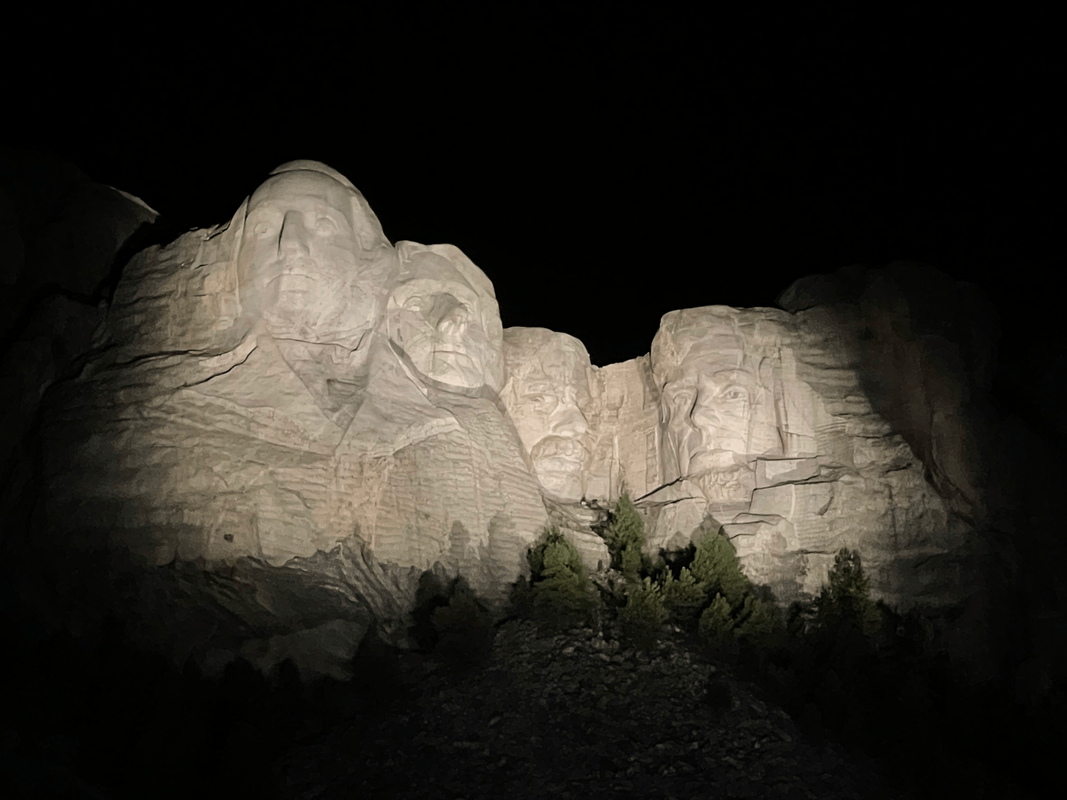
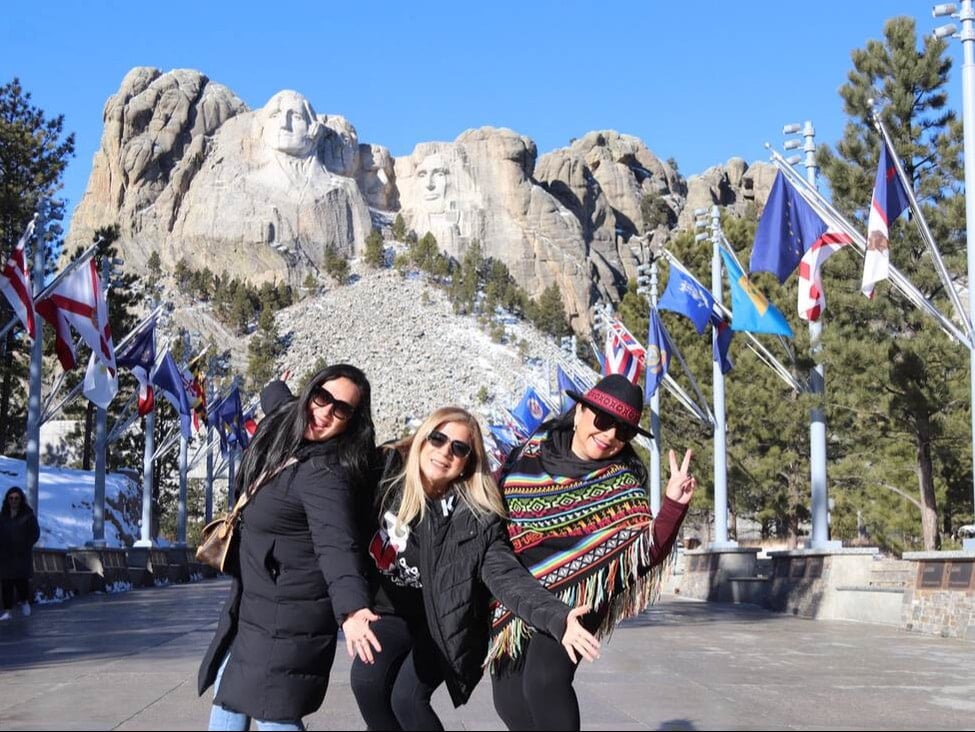
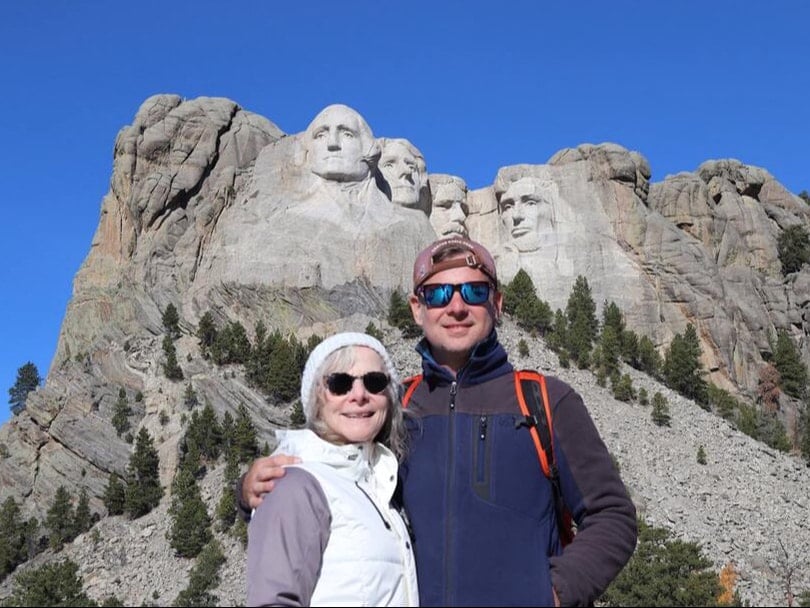
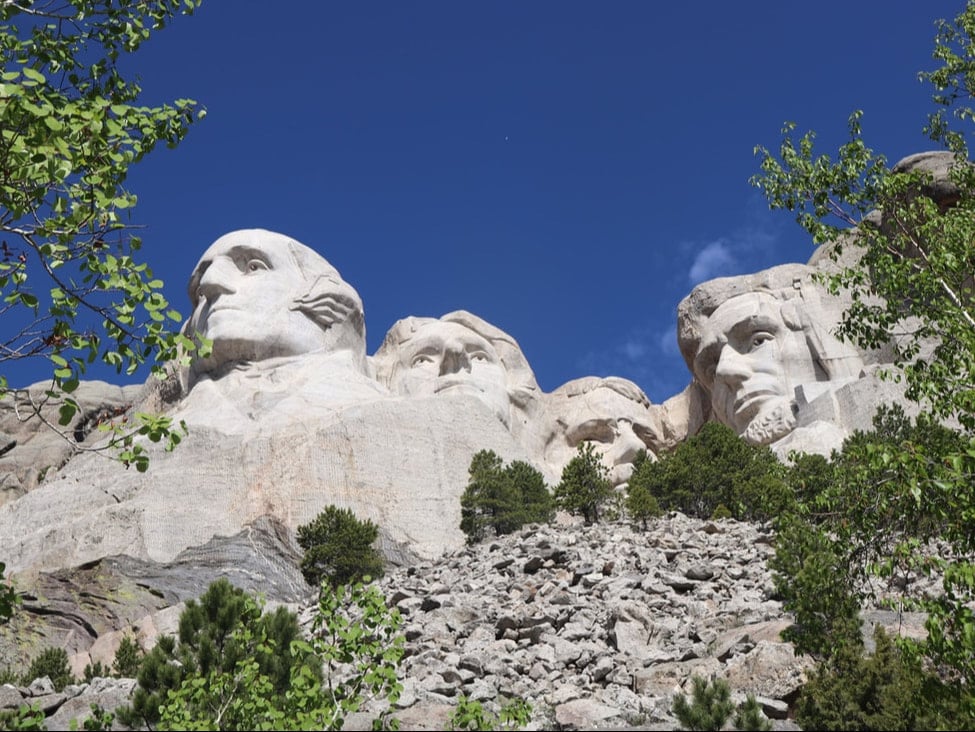
Activities at Mount Rushmore Memorial
- Lincoln Borglum Visitors Center
- Presidential Trail – .6 miles long and 422 stairs
- Mount Rushmore Illumination Ceremony
- Carver’s Cafe Food and Thomas Jefferson Ice Cream
- Mount Rushmore Gift Shop
- Mount Rushmore National Memorial Book Store
- Ranger Talks or Walks
- Sculptors Studio
10 Facts About Mount Rushmore Memorial
- The original location was to be at the Cathedral Spires
- The mountain a Holy Site of the Lakota People called “The Six Grandfathers.”
- Many early visitors mistook Jefferson for Martha Washington
- Many women worked on and contributed to Mount Rushmore.
- George Washington’s nose is the largest, at 20 feet.
- Korczak Ziolkowski, the carver of Crazy Horse, was kicked off the project because of a fistfight with Lincoln Borglum.
- Approximately 4.5 million tons of rock have been blown away from the mountain.
- The town of Keystone provided workers and electricity to Mount Rushmore.
- A hidden room does exist behind the monument called the Hall of Records
- Mount Rushmore has been the site of protests, due to the violation of the Fort Laramie Treaty. While some feel patriotism when visiting, many others see a desecration of a Holy Site.
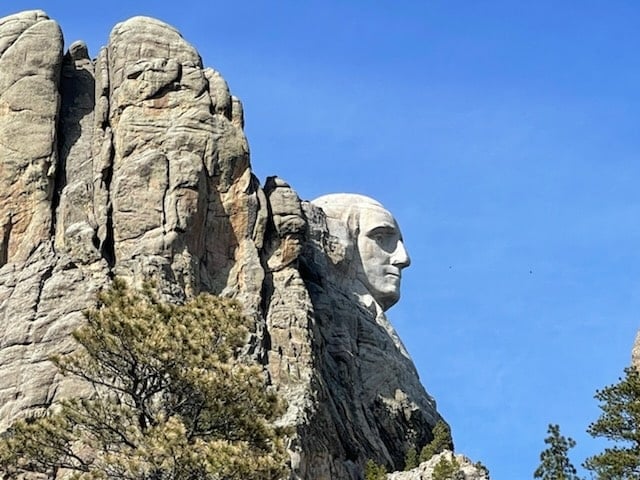
Mt Rushmore Faces: The Presidents
- George Washington was chosen to be the United States’ first President and, more importantly, to preserve liberty through the peaceful transfer of power.
- Thomas Jefferson was chosen to draft the Declaration of Independence and double the size of the United States through the Louisiana Purchase.
- Theodore Roosevelt – Chosen for his projection of U.S. power abroad. Think Panama Canal, Rough Riders, and The Battle of San Juan Hill. He was also chosen for the creation of 150 National Forests, 51 federal bird reserves, four national game preserves, five national parks, and 18 national monuments on over 230 million acres of land.
- Abraham Lincoln – Chosen for his preservation of the Union and the Emancipation Proclamation
Directions to Mount Rushmore Memorial
- From Keystone : 8 Min
- From Custer : 29 Min
- From Deadwood: 1 hr, 4 Min
- From Rapid City: 30 Minutes
- From Hill City: 21 min
- From Crazy Horse: 33 min
- From Sturgis: 57 min
FAQ's of Mount Rushmore Memorial
A: $10 per vehicle, $5 for seniors, Free for Active Duty Military
A: Mount Rushmore is located in the Black Hills of South Dakota.
A: Between 1927 and 1941.
A: Ben Black Elk. He served as the unofficial greeter for 27 years and is the son of Nicholas Black Elk
A: Mountain Time
A: Two hours and 11 minutes.
A: Only service animals are allowed in the public areas.
A: Yes. It is only closed on December 25th for Christmas
A: During the summer, it averages between 70°and 80° Bring layers.
A: From late May to September 30. Hours vary.

